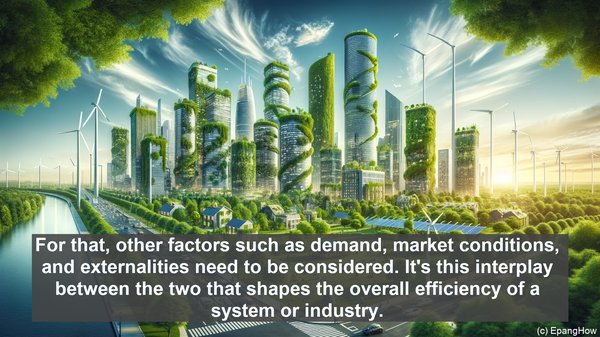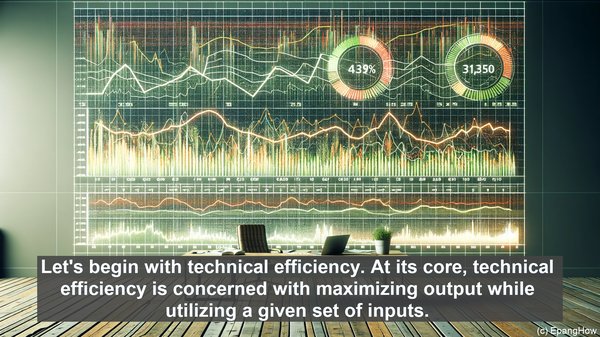Introduction: Efficiency as a Cornerstone of Economics
Hello everyone! Welcome to our article on the distinction between technical efficiency and economic efficiency. Efficiency is a fundamental concept in economics, and understanding its various dimensions is crucial for comprehending the dynamics of production and resource allocation. Today, we’ll explore the difference between technical efficiency and economic efficiency, two key facets of this multifaceted concept.

Technical Efficiency: Maximizing Output with Given Inputs
Let’s begin with technical efficiency. At its core, technical efficiency is concerned with maximizing output while utilizing a given set of inputs. In other words, it’s about achieving the highest possible production level with the resources available. A technically efficient process or system operates without any wastage or inefficiencies, ensuring that every input contributes to the final output. This aspect of efficiency is often associated with the production side of the equation, focusing on the ‘how’ of production.
Economic Efficiency: Balancing Costs and Benefits
Moving on to economic efficiency, we shift our focus from the production process to the broader economic context. Economic efficiency is about achieving the optimal allocation of resources, considering both the costs and benefits. It’s not just about producing more; it’s about producing in a way that maximizes overall welfare. This involves not only the production costs but also the value that consumers derive from the goods or services. In essence, economic efficiency is concerned with the ‘what’ and ‘for whom’ of production.
The Interplay: Technical Efficiency and Economic Efficiency
While technical efficiency and economic efficiency are distinct concepts, they are interconnected. A technically efficient process forms the foundation for economic efficiency. After all, to achieve the optimal allocation, it’s essential to start with a production system that’s already operating at its maximum potential. However, technical efficiency alone doesn’t guarantee economic efficiency. For that, other factors such as demand, market conditions, and externalities need to be considered. It’s this interplay between the two that shapes the overall efficiency of a system or industry.

Examples: Technical Efficiency vs. Economic Efficiency
To illustrate the difference, let’s consider an example. Imagine a factory that produces widgets. If the factory is technically efficient, it means it’s utilizing its resources optimally, producing the maximum number of widgets possible. However, economic efficiency goes beyond that. It also takes into account factors like the demand for widgets, the price consumers are willing to pay, and the costs of production. A factory might be technically efficient, but if the market demand for widgets is low, it might not be economically efficient to produce at full capacity. Economic efficiency requires a careful balance between production and market dynamics.
